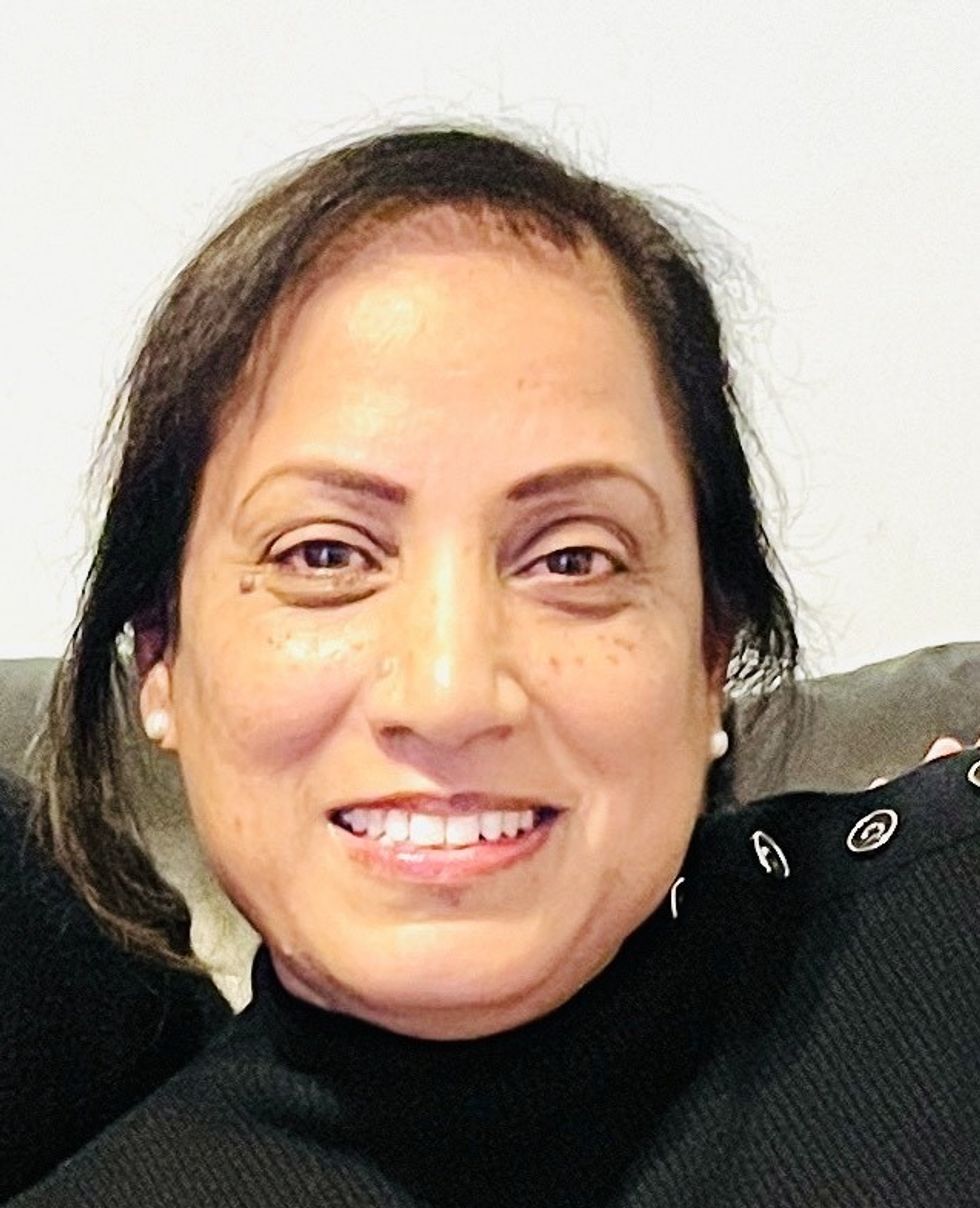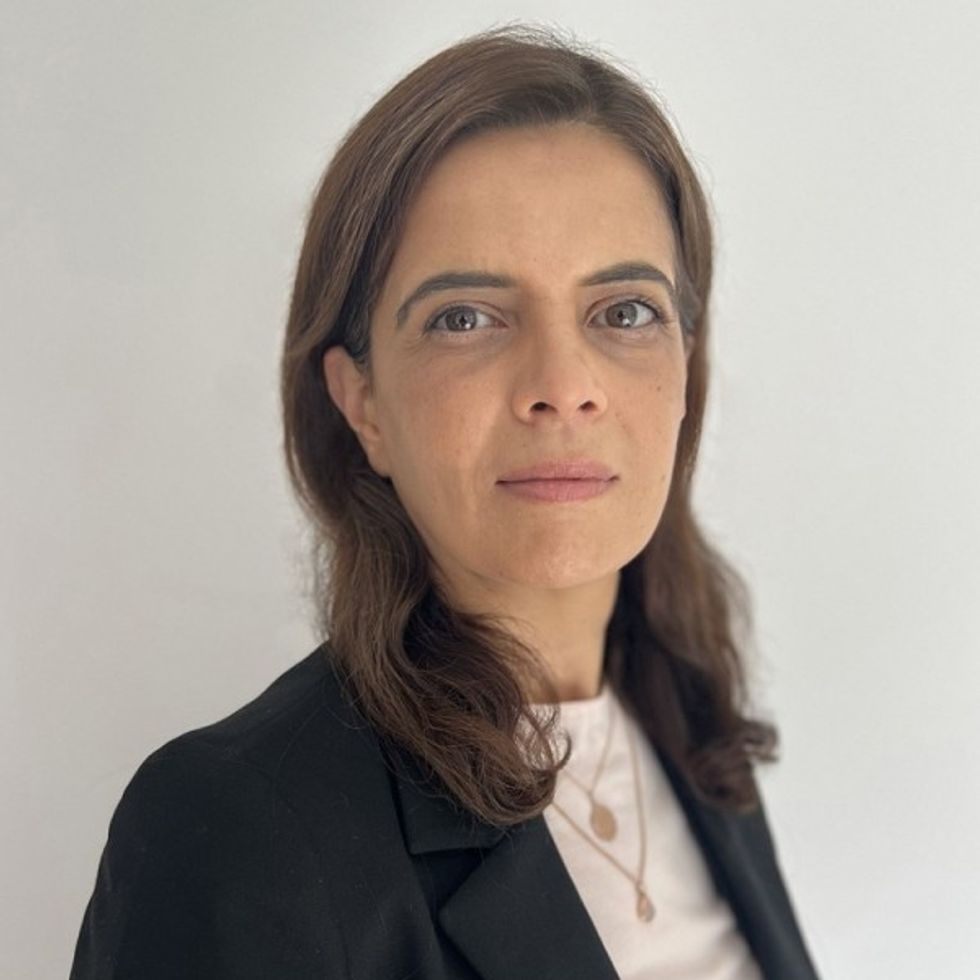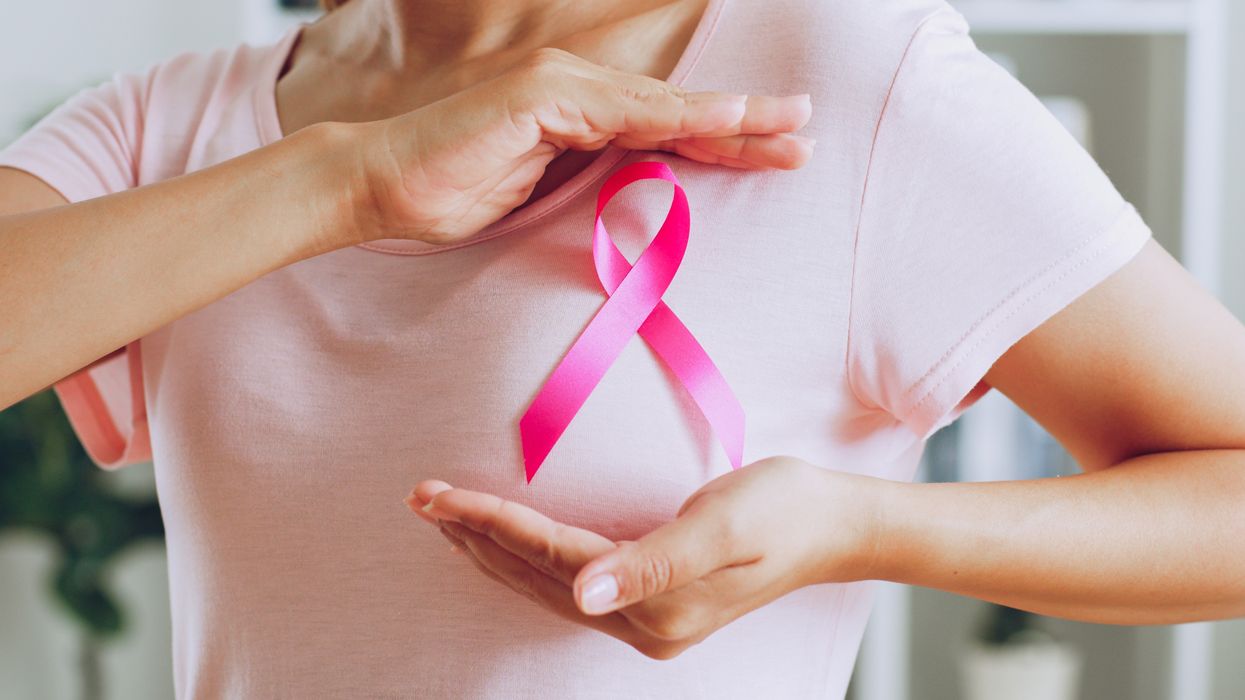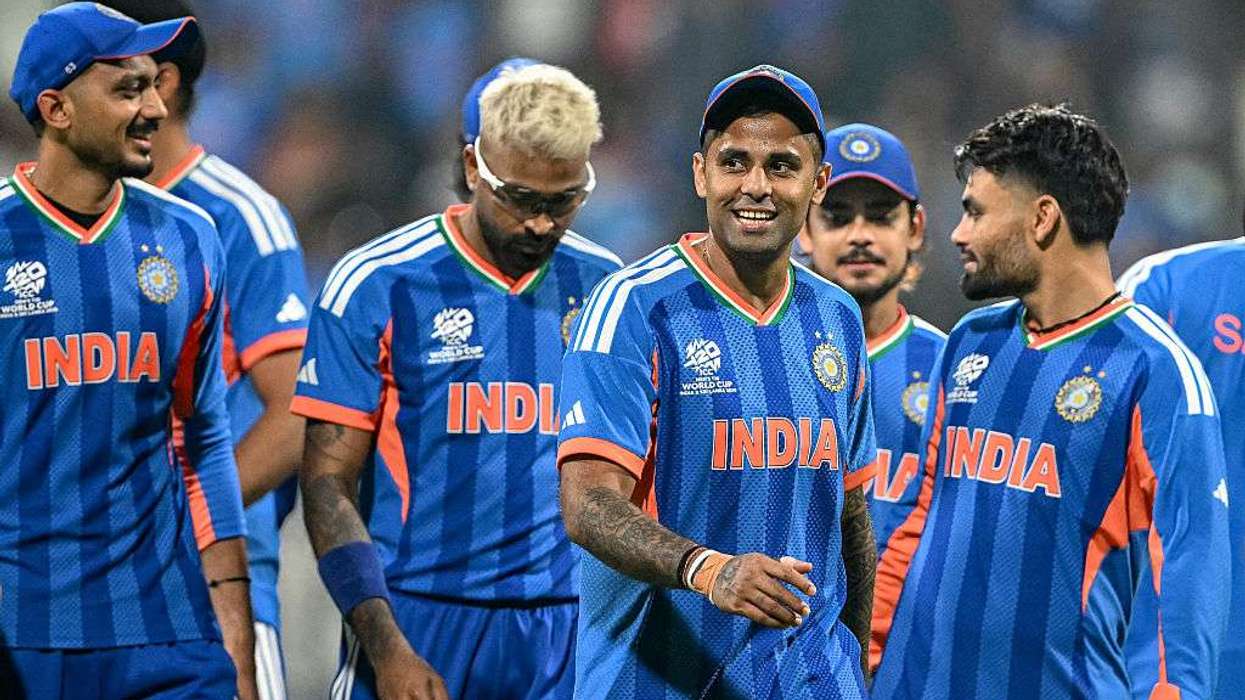DOCTORS should listen to patients and take their feelings into consideration, a cancer survivor has said, as a new study revealed differences in outcomes for ethnic and Caucasian groups.
Breast cancer survivor and patient advocate Balwinder Nanray told Eastern Eye that a patient’s needs should be at the centre of all decisions – as “there’s no one-size-fits-all approach”.
She was responding to a study published on Tuesday (20) by Queen Mary University of London, which found that south Asian women are diagnosed with breast cancer earlier and die younger than women of European heritage.
“Doctors are the experts in their field, and not all patients are from scientific backgrounds. So, why you are having treatment should be explained fully. Because it’s about us. It’s not about somebody else. It’s your body. You’re a person, and you should be able to make those decisions,” said Nanray, who was diagnosed with the disease in 2015, when she was 52.
She added, “My medical team has been amazing, but at times it was difficult to build a trusting relationship with some of my physicians. There were moments when I felt like I was being treated as a number rather than a person.
“With cancer, one size does not fit all, and it’s important that we’re all treated as individuals. Beyond your cancer diagnosis, you are a person, and I think people can forget that.
“Co-producing and collaborating with patients in research can lead to more effective and sustainable solutions that better meet patients’ needs.”
According to Nanray, the needs of Asian patients are different from their white counterparts, and reactions to treatments also vary. Cultural background factors also need to be taken into account for patients, she said.

“From personal experience, I can say my surgeon was of Asian background, and he was wonderful. He understood every need that I had. However, my oncologist was white, and that may have played a part in the decisions. He was amazing and knew what he was doing, but I think he lacked social skills.”
Nanray, who lives with her husband and son in Essex, was diagnosed with breast cancer following a mammogram organised through her workplace.
“I had no symptoms and no lumps. I was a senior leader in financial services, but breast cancer had other ideas. I underwent surgery, chemotherapy, and radiotherapy, and I am currently on hormone therapy to help reduce the risk of the cancer returning. This year marks nearly 10 years since my diagnosis, and I’m very grateful for that,” she said.
Nanray is now engaged as a patient advocate for several cancer charities, including Breast Cancer Now.
The Queen Mary University study said addressing existing racial disparities in breast cancer is crucial to ensure equitable benefit across diverse communities.
Breast cancer remains the most common cancer worldwide, claiming the lives of approximately 11,500 women annually in the UK.
South Asian and black women face poorer survival rates compared to their white counterparts, with three-year survival rates at 89 per cent and 85 per cent respectively, versus 91 per cent for white women.
These patients often receive diagnoses at later stages, when the disease is more difficult to treat.
Precision oncology offers individually tailored treatments, moving away from standardised approaches. However, ethnic minority patients remain underrepresented in clinical trials, limiting the effectiveness of these advances for diverse populations, the study said.
Researchers examined clinical and genetic data from 7,000 women with breast cancer. Health experts stressed the importance of addressing these gaps to ensure equal access to quality care for all patients, regardless of ethnic background.
Professor of bioinformatics at Queen Mary’s Barts Cancer Institute, Claude Chelala, told Eastern Eye, “Our paper highlights the need to address longstanding underrepresentation of patients from ethnic minority groups in cancer research and the disparities this creates.
“Recruiting participants from diverse backgrounds can be challenging for a number of reasons, including cultural and language barriers, and a lack of trust or awareness of research.
“Practical issues – such as time, cost and location – can also make it harder for people to take part in studies.
“To address these barriers, we must work with patients and community groups to build trust and raise awareness, ensuring that research is designed in a way that feels accessible and inclusive. This also includes promoting diversity among the teams that recruit patients for studies and biobanks.”
Chelala added that her team are working with the Breast Cancer Now Biobank to boost participation from underrepresented communities. Their efforts extend to working alongside Barts Charity through the Barts Life Sciences Precision Medicine programme and Barts Health NHS Trust, engaging local communities across north east London to encourage diverse research participation.
Researchers stressed that funders and fellow scientists must implement policies requiring the inclusion of diverse populations in study design, which they said is essential for achieving more equitable cancer care outcomes for all patients.
Nanray, whose treatment lasted 15 months, said, “I think we need more awareness in our communities. I’m trying to go to the temples, gurdwaras, and try to raise awareness for women and men to be more in touch with their bodies. If something’s not right, if you feel it’s not right, go to your GP. If your GP doesn’t listen, go to the hospital or A&E. Make noise until someone listens to you.”
The research, one of the largest studies of its kind involving south Asian women, suggested that NHS screening guidelines may need to change. It revealed that south Asian women were diagnosed with breast cancer nearly seven years earlier than women of European ancestry and died around thirteen years younger. Women of African ancestry were diagnosed about five years earlier and died nearly nine years younger.
Current NHS guidelines recommend breast screening for all women from age 50. However, researchers suggest this may be too late for women from some ethnic backgrounds, potentially missing cases in younger women from these groups. It also pointed out differences in mutation rates in genes linked to breast cancer, including the BRCA genes, which affect genetic testing and treatment decisions.

Some women had genetic mutations that might have made their cancer resistant to certain treatments they received, but this information was not used in planning their care.
“Precision medicine has the power to revolutionise cancer care, but only if it works for everyone,” said Chelala. “If we fail to address blind spots in research, we risk widening health inequalities rather than reducing them.”
She added, “We need to address many blind spots in our knowledge to realise the promise of precision medicine for diverse populations. For this to happen, it is important to understand and tackle the under-representation of patients from ethnic minority groups in research studies and clinical trials. This is essential to enable benefits from future larger studies to be translated to all patients, to tailor care and reduce racial gaps in its delivery.”
Researchers have called for larger studies to better understand the genetic and clinical factors affecting breast cancer across diverse populations. They said funders and scientists must rethink how cancer research studies and clinical trials are designed to ensure all ethnic groups are properly represented.
Fiona Miller Smith, chief executive of Barts Charity, said, “Equity in healthcare is an important need for east London. Inequalities in health outcomes in certain ethnic populations, such as people from African or south Asian ancestry, are often made worse by under-representation in research data and studies.
“That’s why we fund so many projects that help to improve health outcomes for people from different backgrounds – including Professor Claude Chelala and her team’s study published today.
“The findings point to the need for increasing data collection of underrepresented groups in research studies – to ensure medical advances benefit everyone in our community.”
Breast Cancer Now’s Dr Kotryna Temcinaite said women from ethnic minority communities face inequalities throughout their breast cancer journey, from initial help-seeking to survival outcomes.
The research, supported by data from the Breast Cancer Now Biobank, aims to improve treatment approaches and results for these women.
Asked for her advice to someone with a cancer diagnosis, Nanray said, “Advocate for yourself, use your voice. If they don’t listen to you, take someone with you to talk on your behalf or support you. Those are two key things. You need to use your voice, because it’s about you.
“Share your story. Don’t be scared. Cancer is not a death sentence. By using your voice, you can improve it for the next person, the next generation, make their journey that bit easier, because it’s not easy having that diagnosis.”





